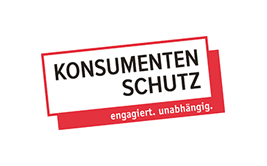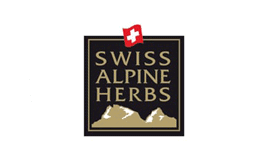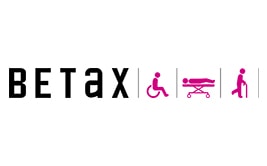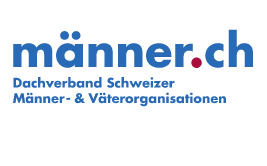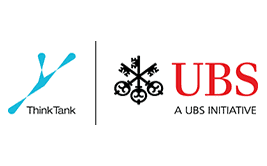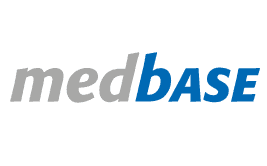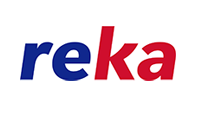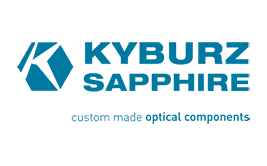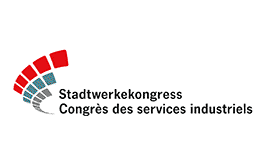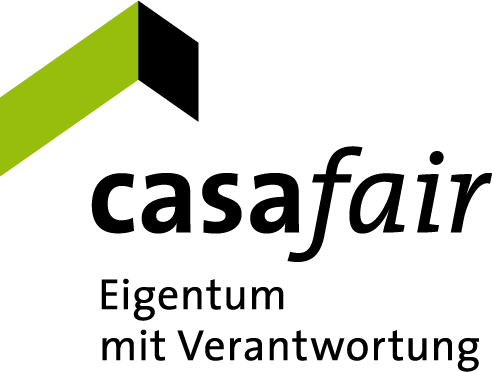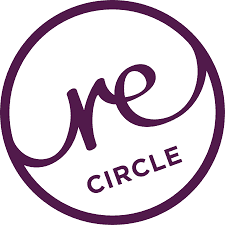The best open source CRM tools – Which system to choose? What should you look out for?
Open source or not open source, that is the question. At least when it comes to choosing a CRM for your company. Open source CRM software and its proprietary competitors each have advantages and disadvantages in terms of cost, complexity, maintenance and ease of use. Which should you choose to make your working world easier? Which is the best customer relationship management software for your business? The answer, as is often the case, can be a little complicated, but we’ll explain it all for you.
What is open source CRM? If an app is “open source”, this means that its “source code” (i.e. the code that executes the program) is publicly accessible. This source code can be distributed, modified and passed on by users as required. The idea behind this is that the app will become more useful and error-free over time if every developer can take a look under the hood and adapt the way the program works.
Developers work together on GitHub or other platforms to fix bugs, add features or change existing ones. Companies can commission developers to modify the open source CRM tool of their choice and obtain a platform that meets their specific requirements.
Open source CRM solutions usually run on Linux (instead of the usual Mac/Windows support) and often combine freely available software such as Apache web servers and PHP. Any software that is under an open source initiative and has an OSI-compliant license can be integrated into a CRM platform and used for commercial purposes.
Open source customer relationship management offers all the useful features of a proprietary CRM such as customer support, pipeline management, market automation and contact management. However, there are significant differences between the two types that need to be taken into account.
The difference between open source code and proprietary software
You can look at it like this: Proprietary software is a closed system, a finished product. You download it for free or buy a subscription and set it up for your needs. No assembly required (i.e. you don’t need to hire in-house developers). This category of CRM is designed for the big picture, i.e. it covers basic needs immediately.
An open source platform, on the other hand, makes its source code available to the public for further development and modification. The expectation is that you want to customize the existing product and adapt it to your specific workflows. Open source code is in most cases already well developed and customization solutions are optimized for speed and simplicity.
Many small and medium-sized companies opt for open source software, while others choose proprietary, closed software.
Both types offer sales, service, marketing, project management and every other CRM function you can think of, and are usually equipped with mobile apps that allow you to work on the go. In terms of quality, there is not really much difference between the two. The choice really depends on what kind of CRM applications you need and how much time you are willing to invest in setting up your system.
The advantages of an open source CRM
Some find great appeal in the open source movement that surrounds CRM. With their sense of mutual community and freedom to innovate, participating in open source projects can make you feel like you’re ‘hacking the system’ or simply producing something original (rather than just buying Salesforce or Microsoft Dynamics and being happy with that). However, others may see the development of open source software as a time-consuming expedition down the rabbit hole that distracts from the real business.
However, one advantage of open source is that these CRM systems generally offer more robust integrations. You can also create the exact integration you want, with no restrictions from the provider. If you’re worried about flexibility and scalability over time, open source definitely has the edge.
Another very pragmatic reason for using open source tools is their cost-free or affordable pricing (in general) and the lack of time-bound commitments for software licenses. If you signed up to a proprietary CRM for a year but realized after seven months that it wasn’t right for you, you’d be paying some pretty hefty costs. This would not happen with most open source tools.
What’s right for you? Out of the box vs. ready-to-go
When it comes to implementation, however, proprietary CRMs have the edge. The customization of an open source solution for your purposes should not be underestimated.
While both types of software are functional out of the box, proprietary software is ready to use immediately after the initial setup. Open source business tools usually require developer hours and a very well thought-out implementation plan to make the time invested worthwhile.
When choosing an open source platform, it is important to ensure that it has a strong, active community of developers. Updates, bug fixes and the like all have to be done by the developer community around the platform.
Below are a few well-known CMS solutions – partially or fully available as open source:
Odoo
Pro:
Odoo relies on “extensible architecture” with a modular design that allows you to combine different functions. The open source community edition of Odoo CRM integrates seamlessly with the provider’s 10,000+ apps, which are configured to integrate seamlessly with each other. If you work in retail, restaurants or other businesses with physical locations, you may be interested to know that Odoo has a very useful point-of-sale app. In conjunction with other Odoo apps, point-of-sale data can easily flow into your inventory management, email marketing and sales processes.
Contra:
The open source version of Odoo CRM has a significant learning curve, and you need to take special care to set it up and implement it correctly to avoid problems later on. The invoice tool is a little more complicated than necessary (you need to create a quote followed by a purchase order to generate an invoice), and the reporting options are limited. Customer support depends on the members of the app community.
Costs:
The open source CRM is free of charge. Paid add-ons are available.
SuiteCRM
In terms of names in the industry, SugarCRM has historically been the best-known open source CRM. Her Community Edition project spanned 14 years and led to a large number of spin-off projects. Yes, these two sentences are written in the past tense for a reason – the platform quietly ceased to be open source at the beginning of 2018. But her legacy lives on! Vtiger and SuiteCRM, for example, are proud descendants of SugarCRM’s original open source code, born and released into the wild in 2004 and 2013 respectively. We take a look at each of these systems and 14 other great open source or free options.
Pro
SuiteCRM manages sales, service and marketing with custom modules, layouts and relationship development tools that will also delight your IT department (if you have one). This CRM also has a real-time dashboard, so new numbers in the data transfer provide broader insights into things like pipeline metrics, open project status and cash flow. Infinite modular customization options and add-ons mean you can use it for simple or complex applications. It also works on every operating system under the sun: Windows, OS/X, Ubuntu, Android, iOS. With a low learning curve and easy setup, it is definitely one of the most accessible open source systems on the market. It is also one of the most popular.
Contra:
Helpdesk support can be slow as it is based on a community. There is also a moderate learning curve, and the integrations and features of the free open source version are not as developed as in paid versions. SuiteCRM does not integrate with ERP software, so it may not be the right choice if you are looking for a holistic integration of business processes.
Costs
The pure SuiteCRM is free of charge. The starter package (recommended for 1-10 users) costs $123 (billed as £95) per month, billed annually. The Business package (recommended for 5-50 users) costs $430 (billed as £332.50) per month, billed annually. The Premium package (recommended for 10-150 users) costs $614 (billed as £475) per month, billed annually. A free 30-day trial version is available for all SuiteCRM: OnDemand hosted solution packages.
OroCRM
Pro:
OroCRM has the reputation of being the most flexible open source CRM. It is based on the Symfony2 PHP framework for web development, which is widely used and popular. This means that many open source developers find it easy to understand Oro’s code and create new customizations, making it relatively easy and cost-effective to adapt the platform to your needs. The simple integration with Zendesk, MailChimp and many other important apps is also a nice feature.
Contra:
If you manage e-commerce, you may need a developer to customize the app to fulfill helpdesk / customer support functions. There is also no localization (Oro is only available in English).
Prices:
The open source version is free of charge. Contact the provider for access to the Enterprise Edition.
X2CRM
Pro:
X2CRM has an open source edition that generously shares the code via GitHub, SourceForge and Bitnami, making it easy for anyone to customize for their own purposes. The software can be downloaded directly from a web server, but you can also get help by downloading it as part of a full batch release. This open-source edition uses many of the core modules of the general (non-open-source) X2CRM platform, which is aimed at larger companies rather than lean start-ups. Lighter operations can benefit from X2CRM Open Source’s marketing campaign, pipeline and funnel management tools. There are email modules that include open email tracking and a function for designing workflow visualizations. X2CRM also has Android and iOS apps.
Contra:
X2CRM is an emerging platform and not the most widely used, so it can be difficult to get the support you need from their rather small community.
Costs:
The open source version is free of charge. Paid individual configuration and development solutions are also available.
Vtiger
Pro:
Vtiger CRM Open Source covers the breadth of customer relationship management features you know and love. You can use it to run marketing campaigns and track leads, customers and opportunities, manage the sales cycle and daily workflows. Reporting and analytics features are included and it has a Gmail extension that comes in handy when referencing CRM data and information when emailing. If you want to expand your usage, you can look around the market for add-ons for greater functionality. It is the most downloaded open source CRM on SourceForge (with over 4.5 million downloads), so it has a large community of users and developers behind it.
Contra:
The reporting functions of Vtiger are somewhat limited in the open source version compared to the paid version. Navigating between functions sometimes feels a bit cumbersome and the Google Sheets integration is not the best. Vtiger also has a moderate learning curve, so it takes time to effectively train your team on the platform.
Costs:
Free of charge, available with paid add-ons.
EspoCRM
Pro:
EspoCRM offers complete sales automation for leads and tracking for opportunities, accounts and contacts. It also keeps in touch with contacts by defining relationships and relating them to multiple accounts. EspoCRM’s Social Stream allows you to track activities and “follow specific data sets” that are relevant to your work.
Contra:
The time spent implementing the open source solution onsite and paying for developers, data hosting, etc. can negate some of the financial benefits you get from the free software. In addition, there are not many integrations with other apps.
Costs:
The self-hosted (on-site) solution is free of charge. Cloud-based solution Pricing in consultation with the provider. A one-month free trial version is available for the cloud-based solution. No credit card required.
Apptivo
Pro:
Apptivo offers a flexible suite of applications designed for customizability. Their starter version is free and offers many of the core tools from their full range as well as 500 MB of storage space. The number of users is limited to three. The contact application allows you to import data from emails and websites to populate your contact and lead data with minimal manual effort. Project management applications in the Apptivo universe provide individual and team organization, while the Cases application automates customer requests by converting emails into tickets with a service level agreement.
Contra:
The free version of Apptivo does not support third-party integrations. Sometimes the application runs a little slowly and the user interface, although suitable for its purpose, is not necessarily the most intuitive.
Costs:
The starter version is free for up to three users. The premium version costs $8 per user/per month and is billed annually. The Ultimate version costs $20 per user/per month and is billed annually.
HubSpot CRM
Pro:
HubSpot is a huge company and played a big role in the introduction of inbound marketing. Its free version automates tedious tasks, manages leads and allows a database of one million contacts. It also allows an unlimited number of users and storage space. Some advantages of HubSpot are, first of all, its large number of training videos, which help to speed up the introduction. Also, due to its size, the company has a pretty good reputation for personalized customer service, which is a big plus compared to many open source solutions.
Contra:
Some drawbacks include limited synchronization between contact and deal data, a weak search function, and the inability to log email attachments to the contact record. You may also need to spend money on add-on modules to get the most out of the free version.
Costs:
HubSpot CRM is free of charge. The add-on packages Marketing Hub, Sales Hub and Service Hub each cost $50 per user/per month and are billed monthly. HubSpot CMS starts at $300 per month and is billed monthly. The Starter Growth Suite package, which includes everything, starts at $113 per user/per month and is billed monthly.
Other well-known open source CRM software in German-speaking countries:
- CiviCRM: A web-based CRM solution developed specifically for non-profit organizations, NGOs and political campaigns.
- Zurmo: A gamified CRM software that motivates users through tasks and challenges and accelerates the workflow.
- OroCRM: A flexible, customizable CRM software that is suitable for various industries and offers functions for marketing, sales and customer service.
- Fat Free CRM: A minimalist, Ruby on Rails-based CRM software that is particularly suitable for developers and smaller teams.
- OpenCRX: A Java-based CRM software that is characterized by high scalability and adaptability.
- Dolibarr: A modular open source ERP and CRM solution for small and medium-sized enterprises, freelancers and non-profit organizations.
- Zammad: An open source helpdesk and ticketing software that also offers CRM functionality for customer communication and management.
- SplendidCRM: A .NET-based CRM software that is characterized by customizability and integration with Microsoft products.
- EPESI CRM: A web-based CRM software that offers a simple user interface and modular extensions for various business requirements.
- Group-Office: A web-based open source groupware and CRM solution that offers functions for e-mail, calendar, file management and customer management.
Particularly important: interfaces and interoperability
Some CRM features for social media managers and teams include tools that combine all social channels into a single overview, the ability to pre-write and schedule posts, provide analytics on reach and interaction, summarize all incoming communications across all social channels in one dashboard, and provide constantly updated suggestions on what to post, when and how often.
Some examples of open source CRMs that work closely with social media spaces include Vtiger, which integrates with Twitter so you can tweet directly from your CRM or upload a 3MB image to Twitter. SuiteCRM integrates with other apps to find out, for example, which social networks your leads are most active on. The key lies in interoperability Fortunately, software is not born in isolation and builds fortresses around its code. A major advantage of many platforms is flexibility, especially in the form of their API (Application Programming Interface). This is something like a guide from one code to another that allows two programs to work side by side or on top of each other.
There are various API standards, with the RESTful API (or sometimes simply REST) being a kind of gold standard, especially for open source CRM. Since the idea of open source is to never close the doors to new developments – no matter where they come from – many API developers rely on the freedom and flexibility of the RESTful API. Most of the aforementioned open source CRMs today use the RESTful API.
Spoilt for choice – all that remains is to test, test some more & test some more …
Depending on your skills and what you want to achieve with a CRM, open source could be more attractive to you than a free or paid-for closed source version. If you run a small business and are looking for very specific features, choosing open source CRM software might actually be the way to go. However, if your business operates more “normally” in a clearly defined market, requires more complex tools and/or requires very fast product support, it may be better to opt for a feature-rich proprietary tool that is tailored to your needs.
Image sources:
pexels / jonathan-petersson
Wenn auch Sie mit einer Herausforderung konfrontiert sind und Unterstützung oder Beratung benötigen, dann kontaktieren Sie uns gerne.
